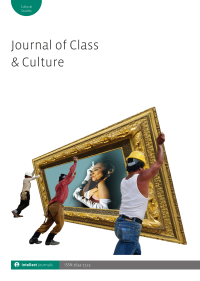-
f The decline and fall of a working classicist
- Source: Journal of Class & Culture, Volume 1, Issue 1, Apr 2022, p. 31 - 45
-
- 20 May 2021
- 07 Jul 2021
- 01 Apr 2022
Abstract
Although the academy tends not to recognize it, scholars and students from working-class backgrounds are automatically at a disadvantage. To demonstrate both sides of the university experience, I provide here a detailed, personal account of my journey from undergraduate to postgraduate to post-Ph.D. researcher. I pay special attention to my chosen subject of classics and ancient history, an area of study with its own set of class-based problems – for while those from working-class backgrounds might be (and are) subject to classism in any discipline, the seemingly inherent elitism of the classics and ancient history field makes it doubly hard for the underprivileged to succeed. I begin by illustrating how ‘working-class knowledge’ of popular culture granted me access into an otherwise closed, exclusionary set of subject materials and go from here to detail how such work is undervalued by the field, before ending on the violent effects that the all-too-familiar casualized employment structure has on those would-be academics who lack access to family wealth, savings and freedom of opportunity/action. Ultimately, I try to show how that – no matter how hard you try – if you are from working-class background, you are highly unlikely to succeed in the modern-day academic system.



